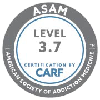There is a certain strength in the wedding vows—and, of course, a profound commitment. In sickness and in health, we say, often not fully grasping the weight those words might carry. Particularly, when ‘sickness’ comes in the form of an empty bottle of whiskey hidden in the laundry hamper. When you have an alcoholic partner in life, those vows are put to a test that’s less about endurance and more about understanding the fine line between supporting and enabling.
Alcoholic Partner and the Nightly Ritual
It starts subtly, doesn’t it? A few extra glasses of wine for the wife, or perhaps the husband who increasingly finds solace at the bottom of a beer can. We notice, but we excuse. Stressful day at work? Sure, have another. But when the ‘one more’ becomes a nightly ritual, and the recycling bin sounds like a wind chime factory, alarm bells should start ringing.
Denial
Denial is an option that we can choose. It is like ignoring a storm raging outside. Acknowledging that your spouse has a problem is step one. You might find yourself playing detective, sniffing out hidden bottles, or counting drinks. But remember, confrontation without compassion is just conflict.
Criteria for Alcoholism
Before we go to much further, just because you suspect there is an alcohol addiction present in your spouse or partner, doesn’t mean it is true. When does one officially enter the realms of alcoholism? It’s usually a slow, often sneaky progression into a territory where the line between “I enjoy a drink” and “I need a drink” gets as blurry.
Here’s the unofficial, yet widely accepted, checklist that might suggest someone is close to or already living with the disease of alcoholism.

- The Morning-After: When hangovers become as regular as morning coffee, it’s a red flag. If your loved one often wakes up with a head pounding harder, it’s a sign.
- The Quantity: There’s drinking, and then there’s drinking. If your spouse regularly guzzles down more than what’s considered “moderate” (think more than one drink per day for women and two for men), it might be time to raise an eyebrow.
- The Secret: If you’re finding hidden bottles stashed about, it’s a clue that they’re not just collecting glassware.
- The Avoidance: When social functions without alcohol are avoided, or when activities are planned around the availability of alcohol, it’s a telling tale.
- The Tolerance: If your partner now drinks significantly more to get the same buzz they once did with less, their body is adapting to the alcohol in a way that points to higher tolerance.
- The Ripple Effect: Like a stone thrown into a pond, alcoholism creates ripples that disturb every aspect of life. Work problems, relationship strains, health issues – if alcohol is at the center of these, it’s a sign.
- Withdrawal Woes: If cutting back on drinking leads to physical symptoms – shaking, sweating, anxiety, or worse, the dreaded morning jitters –these are withdrawals and show that your spouse’s body might be dependent on alcohol.
Remember, being an alcoholic isn’t about how often someone drinks, but how the drinking affects their life and the lives around them. It’s a fine line, and recognizing it requires the sobriety of thought.
What If My Partner Is an Alcoholic?
Intervention. It’s a scary word, laden with the threat of ultimatums and the pain of broken trust. But done right, it’s less of an attack and more of an embrace. It’s telling your drunk wife, “I love you, but I can’t watch you drink yourself into oblivion,” or saying to your alcoholic husband, “Your dreams are falling apart because of this.”
Help comes in many forms. AA meetings for your spouse, Al-Anon for you. Therapy, for both of you, ideally. Remember, alcoholism is a disease, not a character flaw. But treatment requires the patient’s consent – you can lead a horse to water, but you can’t make it order a mocktail.

Alcoholic Spouse: Safety First
Here’s the hard truth: there comes a point where leaving is the only option. If your safety, or the safety of your children, is at risk, there is not even a question. It’s time to go. Alcohol can turn Dr. Jekyll into Mr. Hyde, and you shouldn’t wait around to see the transformation.
Sometimes, letting go is the kindest thing you can do. For yourself, for your spouse. It’s not giving up; it’s accepting that you can’t pilot a plane that’s determined to nose-dive.
Navigating a relationship with an alcoholic spouse is a monumental challenge. Frustrating, tear-inducing, and often, seemingly impossible. But whether you stay or go, seek help or let go, remember this: your worth is not defined by your spouse’s addiction. Your life, your happiness, should not be a casualty of their battle. It’s true, we commit “in sickness and in health,” but never at the cost of losing yourself.
Call Us
At Saddleback Recovery, in Orange County, CA, we understand the complex steps of a spouse with an alcohol addiction.
We’re not just a detox center; we’re a place of hope for those lost in the haze of addiction. Our expert team, compassionate care, and state-of-the-art facilities provide the perfect environment for recovery and healing.
Don’t let alcohol define your life’s story. Fill out the form below, and take the first, most crucial step towards reclaiming your life.








